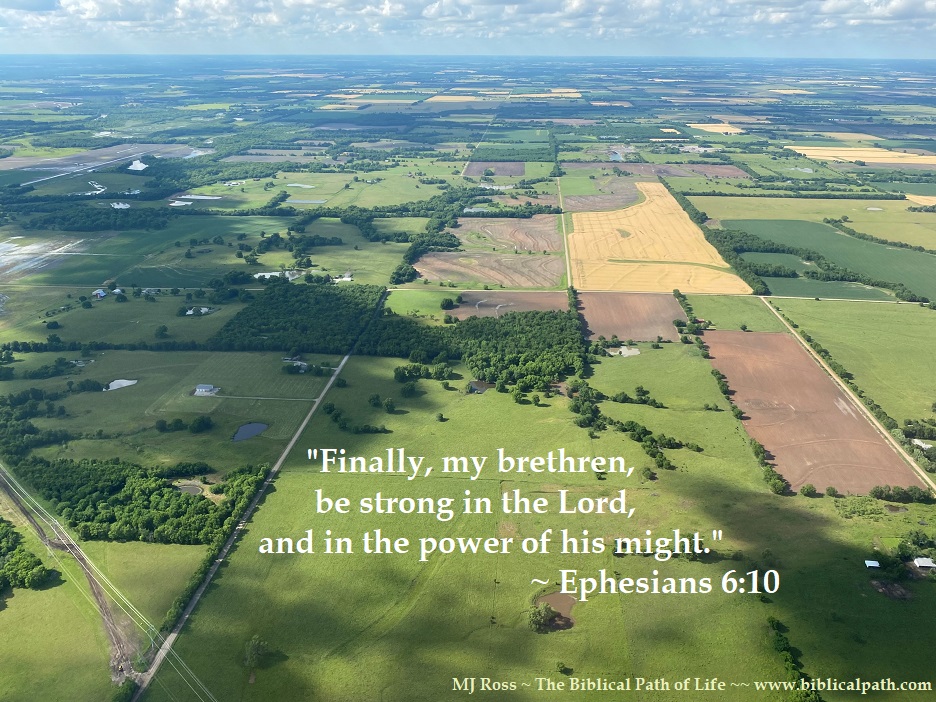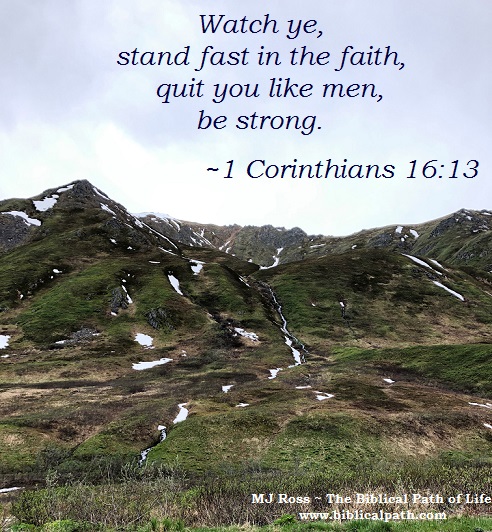
“For the eyes of the LORD run to and fro throughout the whole earth, to shew himself strong in the behalf of them whose heart is perfect toward him. Herein thou hast done foolishly: therefore from henceforth thou shalt have wars.”
2 Chronicles 16:9
Asa was one of the good kings in Judah, and he reigned for 41 years. “And Asa did that which was good and right in the eyes of the LORD his God” (2 Chronicles 14:2). We can read of many good reformations he made (see 2 Chronicles 14:3-8). King Asa recognized that God had given them rest because they had sought God.
When the enemy came against them, read where Asa placed his trust. “And Asa cried unto the LORD his God, and said, LORD, it is nothing with thee to help, whether with many, or with them that have no power: help us, O LORD our God; for we rest on thee, and in thy name we go against this multitude. O LORD, thou art our God; let not man prevail against thee” (2 Chronicles 14:11). Because Asa was a good king, he knew what to do when an enemy came up against Judah. “And call upon me in the day of trouble: I will deliver thee, and thou shalt glorify me” (Psalm 50:15). When he cried out to God, God delivered. Notice also that the enemy was not fearful of Judah, but of God “for the fear of the LORD came upon them” (see 2 Chronicles 14:12-15).
As King Asa and all of Judah’s army was returning, God sent His prophet to them with a message. “2. … The LORD is with you, while ye be with him; and if ye seek him, he will be found of you; but if ye forsake him, he will forsake you. … 7. Be ye strong therefore, and let not your hands be weak: for your work shall be rewarded” (2 Chronicles 15:2, 7). Remembering that God had just helped them win a mighty victory over their enemies when they called upon Him, understand how significant these words were. Judah had just endured two bad kings, kings whose hearts’ did not seek God. There had been a dearth in the land of seeking God and His Words (see this in 2 Chronicles 15:3). Nevertheless, King Asa was encouraged because he had done right in seeking God and calling out to Him in his trouble – and God allowed them to defeat their enemy. However, notice that this message also began with a warning – a warning to not forsake God, or God would forsake Asa (see this in 2 Chronicles 15:2).
What was King Asa’s response to God’s Words by the prophet? “And when Asa heard these words, and the prophecy of Oded the prophet, he took courage, and put away the abominable idols out of all the land of Judah and Benjamin, and out of the cities which he had taken from mount Ephraim, and renewed the altar of the LORD, that was before the porch of the LORD” (2 Chronicles 15:8). It takes great courage to follow God’s Words! King Asa had great courage, and when the people saw this, they recognized God was with him (see 2 Chronicles 15:9). Read Judah’s response to these events: “And they entered into a covenant to seek the LORD God of their fathers with all their heart and with all their soul; 15. And all Judah rejoiced at the oath: for they had sworn with all their heart, and sought him with their whole desire; and he was found of them: and the LORD gave them rest round about” (2 Chronicles 15:12, 15). Because the people made a covenant to seek God, God was found of them. God then gave them rest from their enemies (see 2 Chronicles 15:16-19).
However, even good kings fail sometimes. We are next reminded of the latter part of King Asa’s life where he failed: when there was trouble with the king of Israel. Do you remember how Asa had previously remembered to take courage and call out to God for help? Well, like most people, he tried to solve the problem himself (see 2 Chronicles 16:1-2). He paid a bribe to the king of Syria (an enemy) to help him. Then King Asa received a message from God’s prophet. “And at that time Hanani the seer came to Asa king of Judah, and said unto him, Because thou hast relied on the king of Syria, and not relied on the LORD thy God, therefore is the host of the king of Syria escaped out of thine hand” (2 Chronicles 16:7). Asa blew it. Hanani continued by reminding King Asa of the times that he had trusted God when the enemy had come. Finally, Hanani told King Asa something he had obviously forgotten. “For the eyes of the LORD run to and fro throughout the whole earth, to shew himself strong in the behalf of them whose heart is perfect toward him. Herein thou hast done foolishly: therefore from henceforth thou shalt have wars” (2 Chronicles 16:9). (Perfect means “complete, full, just, made ready, peaceable, perfect”.) Do you remember how God had previously showed Himself strong to King Asa? God waits for His people to call out to Him – just so that He can show Himself to them. We understand that King Asa’s heart was not right, for instead of acknowledging that he was wrong, Asa was angry with the messenger of the Lord, punishing that messenger (see 2 Chronicles 16:10).
It is after this that we read of his demise. “And Asa in the thirty and ninth year of his reign was diseased in his feet, until his disease was exceeding great: yet in his disease he sought not to the LORD, but to the physicians” (2 Chronicles 16:12). His greatest failure was that he did not seek God. Instead, King Asa died with this disease in his feet.
King Asa was a good king. However, he did not stand firm with a perfect heart, allowing God “to shew himself strong in the behalf of them whose heart is perfect toward him.” King Asa forgot to continually seek God.
Have you stood firm (continually seeking God) with a perfect heart, allowing God to show Himself strong on your behalf?







